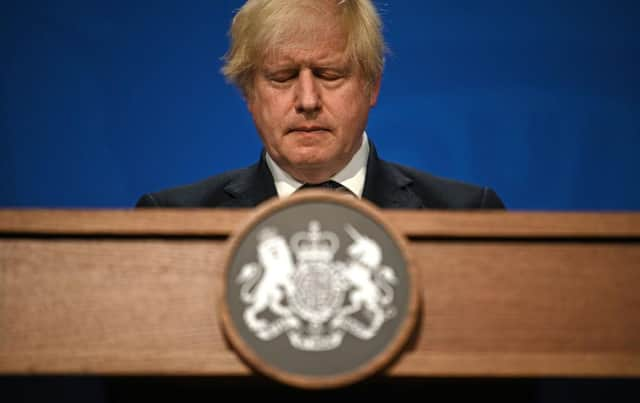Foreign aid spending to be cut to 0.5 per cent despite Conservative rebellion


The government will go ahead with a planned cut to the Foreign Aid budget after MPs voted in favour of the move.
Boris Johnson’s government managed to push through the cut despite a Conservative revolt and the opposition parties voting against it.
At a glance: 5 key points
Advertisement
Hide AdAdvertisement
Hide AdForeign Aid, or the funding for official development assistance (ODA) will be cut from 0.7 per cent to 0.5 per cent, a reduction of £4.4bn
The cut to foreign aid was passed by a majority of 35 votes, despite opposition from former Prime Minister Theresa May and a number of Conserative backbench MPs
A larger Conservative rebellion looked likely until the Chancellor proposed a compromise to put in place tests for when the level of ODA spending will go back to 0.7 per cent
The funding will be returned to the promised level if the Office for Budget Responsibility (OBR) believes the UK is not borrowing to finance day-to-day spending and underlying debt is falling.
Advertisement
Hide AdAdvertisement
Hide AdMany MPs have criticised this rule, saying it is unlikely to see the level of funding restored as the conditions stipulated have only been met once in 20 years
What’s been said?
Former Prime Minister Theresa May said: “This isn’t about palaces for dictators and vanity projects, it’s about what cuts to funding mean – that fewer girls will be educated, more girls and boys will become slaves, more children will go hungry and more of the poorest people in the world will die.”
Labour leader Sir Keir Starmer said: “We are the only G7 country which is cutting our aid budget.
“That is not the vision of global Britain we want to see on these benches and I don’t think it’s the vision of global Britain that many on the opposite benches want to see either.”
Advertisement
Hide AdAdvertisement
Hide AdLiberal Democrat leader Sir Ed Davey said: “It’s decisions like this that will make millions of voters, especially in the Blue Wall, move away from the Conservatives in droves.”
Oxfam GB chief executive Danny Sriskandarajah said the vote was a “disaster for the world’s poorest people” and the Government “is putting politics above the lives of world’s most vulnerable communities”.
Romilly Greenhill, UK director of the anti-poverty One Campaign, said: “Today’s result is a needless retreat from the world stage, enforced by the Treasury, at the exact moment the UK should be showing leadership and stepping up to the greatest global crises in our lifetimes.
“It’s akin to cutting the RAF during the Battle of Britain.”
Background
Advertisement
Hide AdAdvertisement
Hide AdThere is currently a requirement written into the law to spend 0.7 per cent of Gross National Income, which was backed by a pledge in the last Conservative manifesto.
The 0.5% level means more than £10 billion will be spent on aid this year, around £4.4 billion less than if the original commitment had been kept.
According to the OECD’s preliminary data on foreign aid in 2020, Sweden, Norway, Luxembourg, Denmark and Germany were the highest relative contributors.
All five countries gave more than the benchmark 0.7 per cent, with Sweden surpassing this by more than 50 per cent.
Advertisement
Hide AdAdvertisement
Hide AdHowever, looking at gross contributions, the five highest contributors as per the 2020 preliminary data were the US, Germany, the EU, the UK and Japan.
The US’s contribution of more than $35bn accounts for less than 0.2 per cent of its GNI, despite being the largest single contribution by $7.05bn - more than Sweden’s total amount.
Comment Guidelines
National World encourages reader discussion on our stories. User feedback, insights and back-and-forth exchanges add a rich layer of context to reporting. Please review our Community Guidelines before commenting.